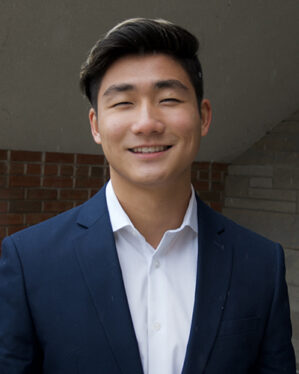 Last summer, I had the opportunity to conduct research at INSEAD in Fontainebleau, France. From June to August, I worked with Professor Spencer Harrison of the organizational behavior department studying companies and entrepreneurs who work in “dirty creativity.” The entire summer, from working with incredible researchers and innovators to living in Paris, was such an amazing learning experience and I am so grateful for the opportunity that the World Research Assistantship Program (WRAP) offered.
Last summer, I had the opportunity to conduct research at INSEAD in Fontainebleau, France. From June to August, I worked with Professor Spencer Harrison of the organizational behavior department studying companies and entrepreneurs who work in “dirty creativity.” The entire summer, from working with incredible researchers and innovators to living in Paris, was such an amazing learning experience and I am so grateful for the opportunity that the World Research Assistantship Program (WRAP) offered.
During the fall semester in 2020, I took up a research assistant role with Prof. Samir Nurmohamed in the management department at Wharton. With Prof. Nurmohamed, I learned so many different skills including how to review literature, clean and analyze data, and build out Qualtrics surveys. From various projects including studies on underdogs and alternate choices in the workplace, I became drawn to one particular project about entomophagy, or the practice of eating insects, and a concept called “dirty creativity,” of which Prof. Nurmohamed was researching with his colleague Prof. Spencer Harrison of INSEAD.
When I found out about the WRAP program, I was immediately drawn to the idea of both working internationally and collaborating between both institutions. The process of connecting with Prof. Harrison was fast with the help of my faculty advisor Prof. Nurmohamed, and I was able to start planning my trip and research project pretty soon in the spring!
Throughout the spring, I read more about the dirty creativity project, which included going through an archive of articles, as well as exploring websites and showcases of entrepreneurs who were creating products out of recycled and stigmatized materials. I was even able to communicate with some of them, and help distribute a survey to many of these entrepreneurs.
When I first landed in Paris, the culture and language differences were so apparent to me, and it was challenging meeting and communicating with people. With school out of session at INSEAD, which only offers graduate programs, it was also difficult connecting to other students around me. However, eventually, I got settled into my own apartment in the 5th arrondissement of Paris and got into a routine of splitting time commuting to INSEAD and working virtually in local co-working spaces. After the first couple of weeks, I learned so much about Parisian and French culture, food, and people, and made many friends along the way including other students and locals. In my free time and weekends, I was able to explore the museums and palaces around Paris, which was a great way to learn about the city and its history.
At the same time, I was diving into my work with Prof. Harrison. My research focused on companies who work with traditionally stigmatized or reused materials such as recycled clothing or insects for food. We looked at how these companies can connect with consumers, and how entrepreneurs can interact with and balance between their levels of novelty and familiarity. Working in a hybrid format with Prof. Harrison, we conducted literature reviews and indexed the various types of companies within the dirty-creativity space, eventually building out a framework for categorizing them.
Over time, I caught a rhythm and started to really feel comfortable in the new country and workplace. While the time difference of six hours was a lot to adjust to, I was able to get used to that as well and catch up with my family and friends when I could. At the end of the experience, I am extremely glad and grateful for all of the people who helped me along the way, including my mentor Prof. Harrison and advisor Prof. Nurmohamed and all of the coordinators of the WRAP program. I feel confident that I left that summer with both a continued interest in studying creativity and innovation and a wider skill set ranging from research ideation and analysis to professional communication.


